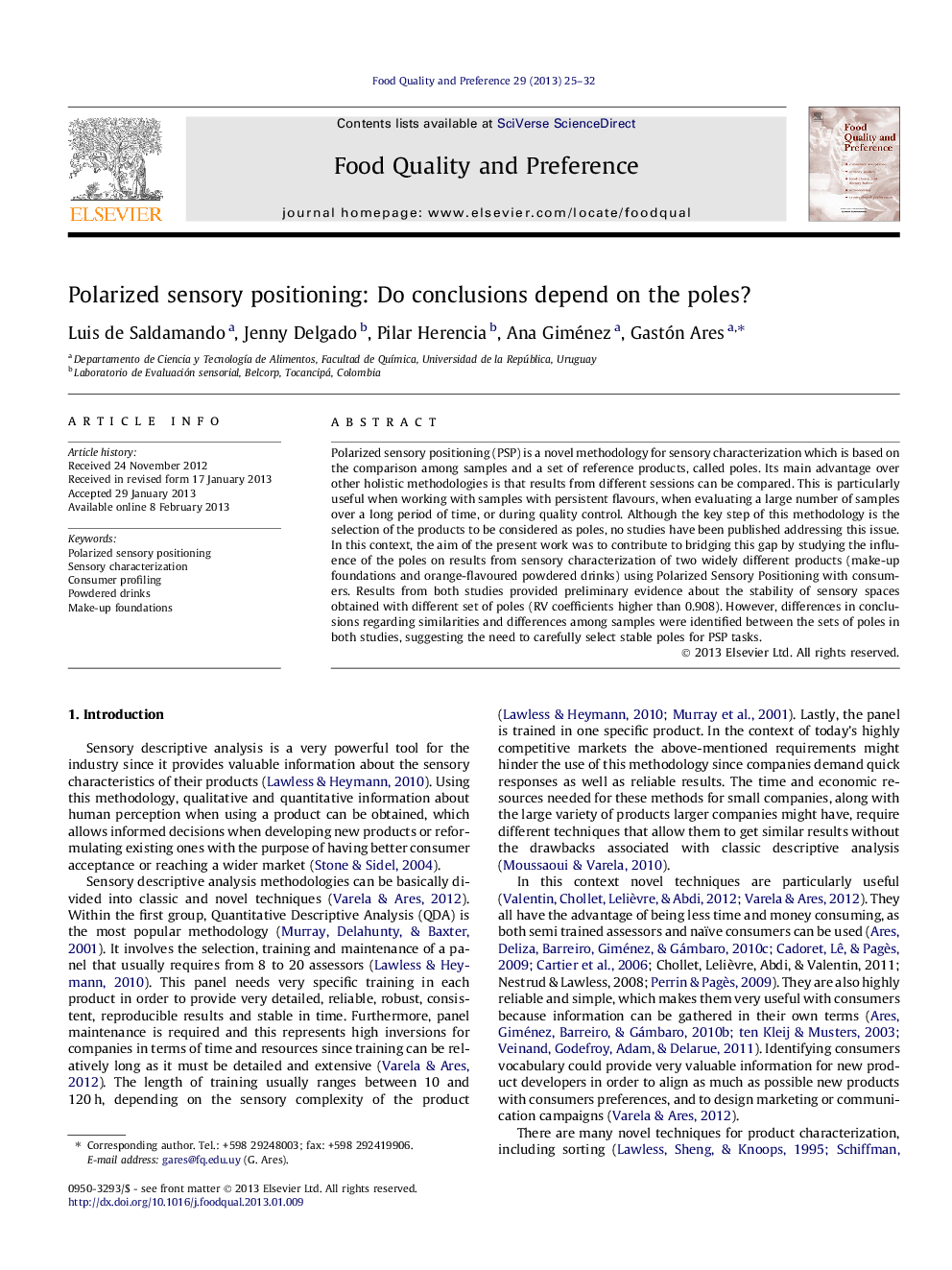| Article ID | Journal | Published Year | Pages | File Type |
|---|---|---|---|---|
| 4317336 | Food Quality and Preference | 2013 | 8 Pages |
Polarized sensory positioning (PSP) is a novel methodology for sensory characterization which is based on the comparison among samples and a set of reference products, called poles. Its main advantage over other holistic methodologies is that results from different sessions can be compared. This is particularly useful when working with samples with persistent flavours, when evaluating a large number of samples over a long period of time, or during quality control. Although the key step of this methodology is the selection of the products to be considered as poles, no studies have been published addressing this issue. In this context, the aim of the present work was to contribute to bridging this gap by studying the influence of the poles on results from sensory characterization of two widely different products (make-up foundations and orange-flavoured powdered drinks) using Polarized Sensory Positioning with consumers. Results from both studies provided preliminary evidence about the stability of sensory spaces obtained with different set of poles (RV coefficients higher than 0.908). However, differences in conclusions regarding similarities and differences among samples were identified between the sets of poles in both studies, suggesting the need to carefully select stable poles for PSP tasks.
► Studies the influence of the poles on results from polarized sensory positioning. ► In two studies with widely different products sensory spaces with different poles were similar. ► Differences in conclusions regarding similarities and differences among samples were identified.
